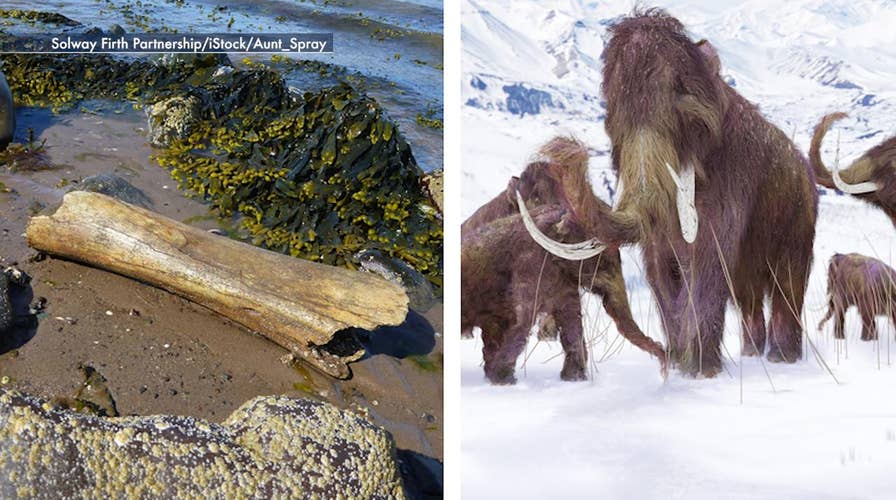An extremely rare woolly mammoth bone has been found on a beach in Scotland.
The mysterious bone was found on a beach in Loch Ryan in southwest Scotland by Nic Coombey of local economic development and environmental group Solway Firth Partnership.
The bone was sent off for scientific analysis by experts from the National Museum of Scotland who say that it is likely part of a woolly mammoth’s femur.
WOOLLY MAMMOTH SKELETON FOUND IN FRANCE
The Solway Firth partnership notes that only one other woolly mammoth bone has been recorded in Scotland. However, the bone, which was found in the 1800s, has been lost, as have details about it.
“Mammoth species roamed the steppes of North America and Western Europe from about 100,000 and 14,000 years ago,” explained the Solway Firth Partnership, in its statement. “The almost total glaciation of Scotland means mammoth remains are rarely found although tusks and teeth have been recorded at about 10 locations.”
In 2012, a nearly complete skeleton of a woolly mammoth was unearthed in France, much to the delight of archaeologists. Wooly mammoth finds, however, are more common in Siberia where frozen remains have been discovered on a number of occasions.
CAN THE LONG-EXTINCT WOOLLY MAMMOTH BE CLONED?
The unearthing of well-preserved woolly mammoth remains and advances in genetic research have fueled discussion that the long-extinct beasts could be cloned. However, the ethics of scientists bringing about the possible “de-extinction” of a species have been hotly debated, with critics saying that resources would be better spent on existing animals.
The Associated Press contributed to this article.
Follow James Rogers on Twitter @jamesjrogers
